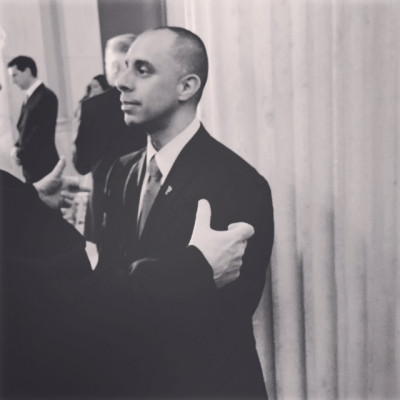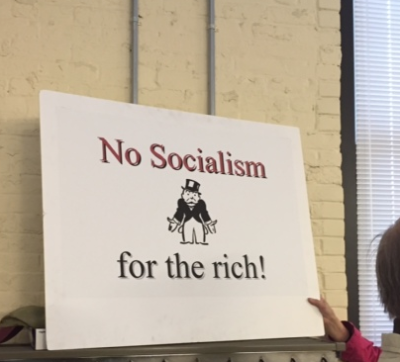PawSox Stadium Winners and Losers: The 2nd Bloodless Revolution
Monday, September 21, 2015
Call it Rhode Island’s 2nd Bloodless Revolution - the defeat of the proposed PawSox stadium in Providence maybe a seminal moment in Rhode Island’s political history.
SEE SLIDES OF WINNERS AND LOSERS BELOW
GET THE LATEST BREAKING NEWS HERE -- SIGN UP FOR GOLOCAL FREE DAILY EBLASTIn 1935, Rhode Island’s political power was wrestled away from the Republicans and firmly placed in the hands of the Democrats through a series of political procedure moves that shifted the control of the State Senate and the Courts, to mark Rhode Island's first Bloodless Revolution.
Fast forward eighty years -- the proposed Providence stadium supporters included the ownership group of some of the regions most wealthy and powerful men - the Chair of TJX Corp, the former CEO and Chair of CVS, the former Chair and CEO of the once dominant Fleet Bank, to name just a few. Combined, the ownership group's net worth is in the billions.
The ownership group also included the Boston Red Sox ownership.
The owners hired the most powerful lobbyist in the state, numerous public relation consultants, former legislators, and stadium consultants. The building trades unions, close allies of Governor Gina Raimondo, strongly supported the project.
Providence Journal’s longtime columnist Mark Patinkin wrote a column “Providence PawSox park needs the 'Go!' sign," which was just one of many pro-stadium pieces published by the ProJo.
When first announced earlier this year, the project received the support of the powerful Speaker Nicholas Mattiello, Providence Mayor Jorge Elorza, Council President Luis Aponte, and positive remarks from Raimondo.
Immediately after the proposed Providence Stadium was announced, Pawtucket residents and Mayor Don Grebien complained about the proposed move, but when the financial plan was unveiled in April by Jim Skeffington, a politically diverse coalition of opponents came forward led by progressive activists, Republicans, taxpayers from around the state, and Raimondo raised concerns about the proposed cost.
Never before in Rhode Island history has a coalition of the disenfranchised ever defeated the most powerful political and economic interests.
Related Slideshow: PawSox Stadium Aftermath: Winners and Losers
The Providence baseball stadium looked like a sure thing. Powerful owners pushing the project. Top politicians coupled with influential lobbyists and PR consultants all on board. Then, everything changed.
Related Articles
- Mattiello 1-on-1 Interview: New Stadium Proposal to Be “Revenue-Positive”
- PawSox Stadium Opponents to Up Pressure at State House this Week
- PODCAST: Providence Soccer Stadium Could Create 1500 Jobs and $2 Billion in Economic Impact
- Providence Soccer Stadium Could Create 1500 Jobs and $2 Billion in Economic Impact
- Tens of Thousands Sign Petitions Against PawSox Providence Stadium Deal
- GoLocalTV: PawSox Stadium Opponents Rally at RI State House
- Raimondo Says Stadium Deal Not Fair; Owners Demand State Funding
- Guest MINDSETTER™ Dr. Mazze - New PawSox Stadium v. 38 Studios Lessons Unlearned
- EXCLUSIVE: Major Music Promoter Eyeing 195 Stadium Land in Providence
- Guest MINDSETTER™ David Norton: PawSox Owners Trying to Buy Support
- A Timeline of the PawSox Stadium Controversy
- NEW: Providence Stadium Deal Opponents Pressure 195 Commission into Open Meeting
- Leaders’ Reactions Mixed to Providence Sox Stadium Proposal
- EXCLUSIVE: New PawSox Stadium Location Emerges in Providence
- Stadium Theatre Welcomes The Funniest Housewives of Orange County
- Opposition Mounting Against Providence Sox Stadium Proposal
- Jencunas: Providence PawSox Stadium - Boon or Bust?
- Dr. Downtown, David Brussat: Stadium Design Hits Home Run
- NEW: Bill Introduced to Require Voter Approval for PawSox Stadium Deal
- NEW: Bill to Require Voter Approval for PawSox Stadium in House Finance
- Pawtucket Fights to Keep PawSox: Mayor Grebien’s Letter to Larry Lucchino
- NEW: PawSox Release Statement on Jim Skeffington Passing Away
- NEW: PawSox President Jim Skeffington Dies
- What’s Next for the PawSox?
- Sec of State Sends PawSox CEO Congrats Letter and Opponents Warning Letter
- PawSox Stadium Opponents Claim Political Intimidation from State
- Guest MINDSETTER ™ Berwick: The Best Deal for RI Taxpayers is to Keep PawSox in Pawtucket
- PawSox to Host Miss RI Night on August 24
- Guest MINDSETTER ™ Art Norwalk: Should We Swing at the PawSox Owners’ Next Pitch?
- 12 Reasons Why the PawSox Move to Providence is in Peril
- Guest MINDSETTER ™ John Loughlin: PawSox Listening Tour? Listen to This!
- Ethics Leaders Call for PawSox to be Fined for Failing to Register as Lobbyists
- PawSox Stadium Opponent “Intimidated” by Cranston Police After Calling Fung
- ANALYSIS: Boston’s Olympics Bid is Dead, Will PawSox Providence Stadium Be Next?
- Providence Residents Increasing Opposition to PawSox Stadium
- PawSox Owners Not Registered to Lobby in Providence
- PawSox Providence Stadium is Dead Says Speaker Mattiello













